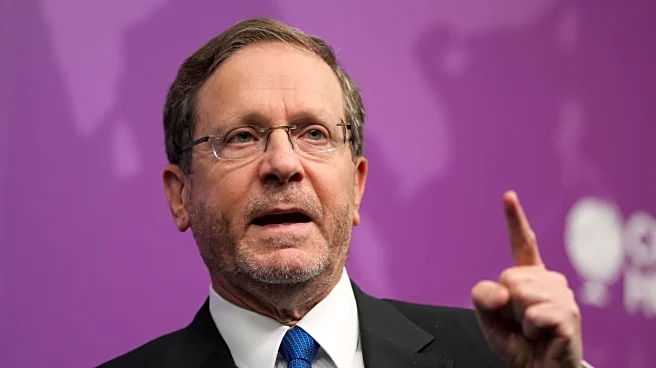What's Happening?
Changpeng 'CZ' Zhao, the founder of Binance, a major cryptocurrency exchange, expressed surprise at receiving a pardon from President Trump. Zhao was pardoned on October 23 after serving four months in prison for failing to maintain anti-money-laundering
controls at Binance, a violation of the Bank Secrecy Act. In an interview with Fox News, Zhao stated that he was uncertain about the timing of the pardon and denied any business dealings with the Trump family's cryptocurrency venture, World Liberty Financial. The Wall Street Journal had reported potential discussions of a deal between Binance and World Liberty Financial as leverage for the pardon, which Zhao categorically denied.
Why It's Important?
The pardon of Zhao by President Trump is significant as it may influence the regulatory landscape for cryptocurrency exchanges in the U.S. Binance's potential return to the U.S. market could impact competition and innovation within the crypto industry. The pardon also raises questions about the intersection of politics and business, particularly concerning the optics of potential ties between Zhao's ventures and the Trump family's crypto interests. This development could affect public perception and trust in the regulatory processes governing financial and technological sectors.
What's Next?
Zhao's comments suggest a focus on helping America become a leader in the cryptocurrency space. The pardon may facilitate Binance's re-entry into the U.S. market, potentially leading to increased competition among crypto exchanges. Stakeholders, including regulators and industry leaders, may react to this development by reassessing the regulatory framework for cryptocurrency operations. The Wall Street Journal's stance on its reporting indicates ongoing scrutiny and debate over the implications of Zhao's pardon and its potential impact on the industry.
Beyond the Headlines
The pardon of Zhao highlights ethical considerations regarding the influence of political connections in legal and business outcomes. It underscores the need for transparency and accountability in the intersection of politics and business, particularly in emerging sectors like cryptocurrency. The situation may prompt discussions on the ethical responsibilities of business leaders and policymakers in maintaining integrity and fairness in regulatory practices.

















